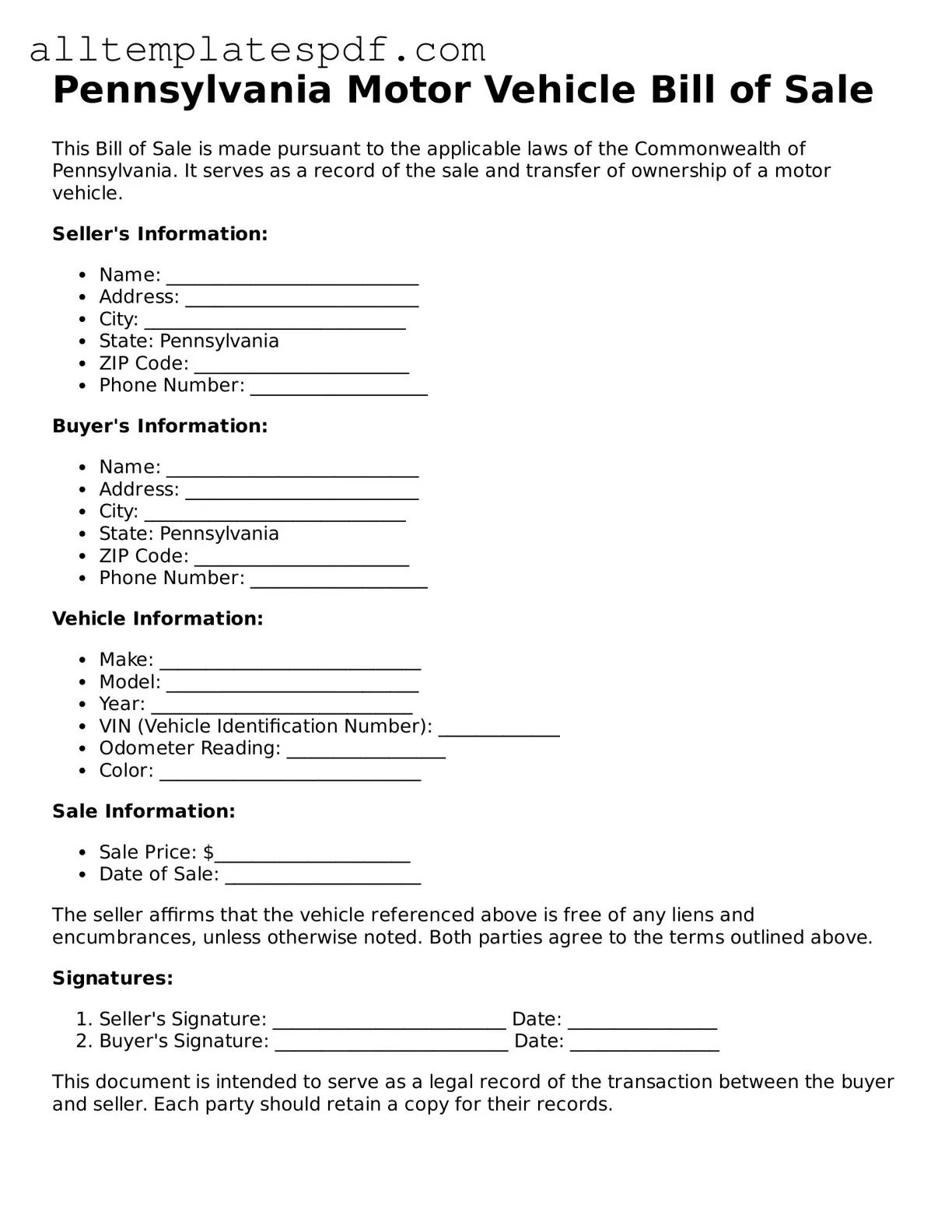Blank Motor Vehicle Bill of Sale Template for the State of Pennsylvania
The Pennsylvania Motor Vehicle Bill of Sale form is a crucial document that serves as proof of the transfer of ownership for a vehicle in the state. This form outlines essential details such as the buyer and seller information, vehicle description, and sale price. Understanding how to properly complete this form can streamline the transaction process and ensure legal compliance.
Ready to fill out your Motor Vehicle Bill of Sale? Click the button below to get started!
Open Editor

Blank Motor Vehicle Bill of Sale Template for the State of Pennsylvania
Open Editor
Fast and easy form completion
Complete Motor Vehicle Bill of Sale digitally — fast and easy.
Open Editor
or
↓ Motor Vehicle Bill of Sale PDF Form
